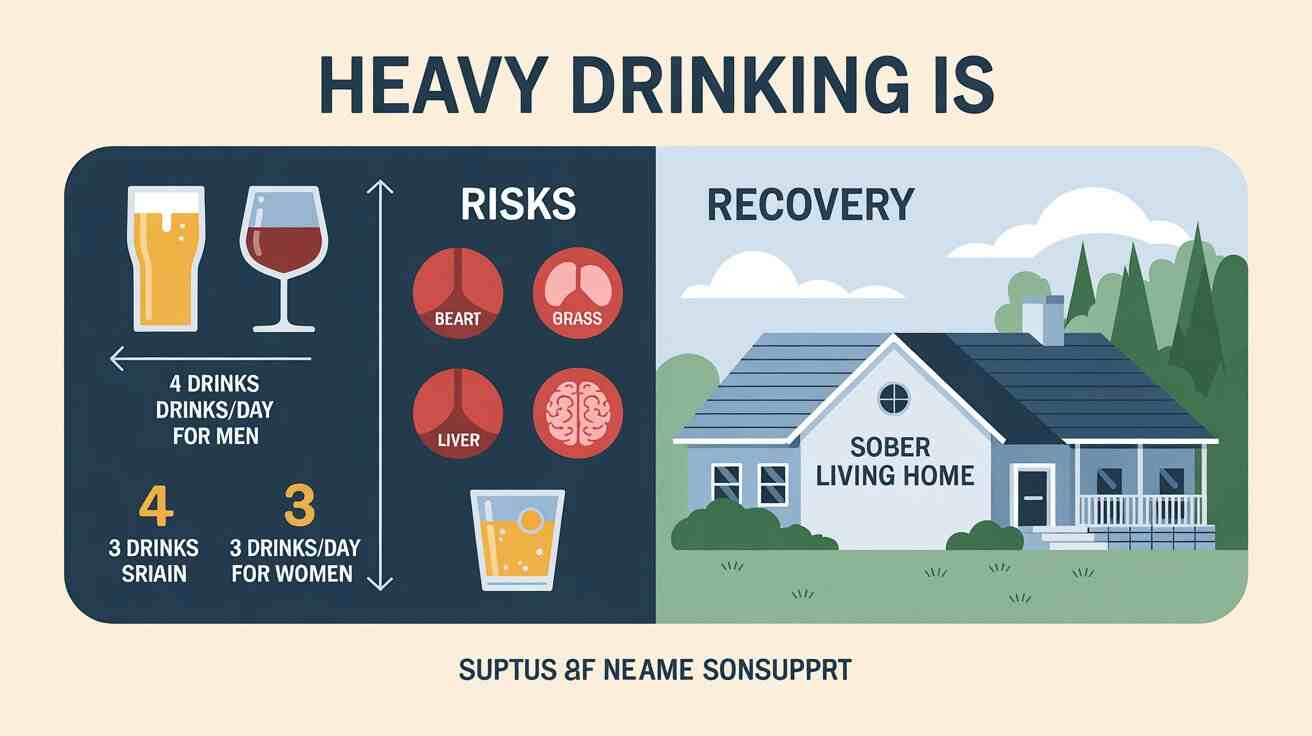


Learn what counts as heavy drinking, its health risks, signs to watch for, and how sober living homes can support long-term recovery.
Drinking alcohol is common, but it’s important to know when drinking becomes heavy. Heavy drinking can cause many problems. It can hurt your body, brain, and life. This post will explain what heavy drinking means, how to spot it, and what to do about it. We’ll also talk about sober living homes, which can help people stop drinking and stay sober.
Heavy drinking means drinking more alcohol than is safe. Doctors and health experts have rules for what counts as heavy drinking. They look at how much a person drinks in one day or week.
A standard drink is one small drink, like a glass of wine, a beer, or a shot of liquor.
For men, heavy drinking is more than 4 drinks a day or 14 drinks a week. For women, it is more than 3 drinks a day or 7 drinks a week. Drinking more than these limits is heavy drinking.
Heavy drinking is different from binge drinking, which means drinking a lot at once, but both can be harmful.
How do you know if drinking is heavy? Some signs include:
These signs show alcohol abuse and excessive drinking.
Heavy drinking hurts your body and brain. It can cause:
Long-term heavy drinking causes serious health damage. Knowing the effects of heavy drinking helps you make safer choices.
People drink heavily for different reasons. Stress, family history, or friends who drink can make it more likely. Some drink to feel better or forget problems, which can lead to alcohol addiction.
If you want to drink less, try these tips:
If you want to stop drinking, many alcohol treatment options can help.
Sober living homes help people who want to stop heavy drinking. These homes offer a safe, alcohol-free place to live after rehab or treatment.
Sober living homes give you:
Many find sober living homes help keep them sober for the long term. They are a great choice if you want to stay away from alcohol.
Sometimes heavy drinking needs professional help. Signs you should get help include:
You can get help from alcohol rehab, counselors, or support groups. Getting help early makes recovery easier.
Heavy drinking means drinking more alcohol than is safe. It can cause many health problems and hurt your life. Knowing the signs and limits helps you make smart choices.
If you or someone you love drinks too much, get help. Talk to a doctor, consider sober living homes, and use available addiction recovery options. You can live a healthier, sober life with the right support.
